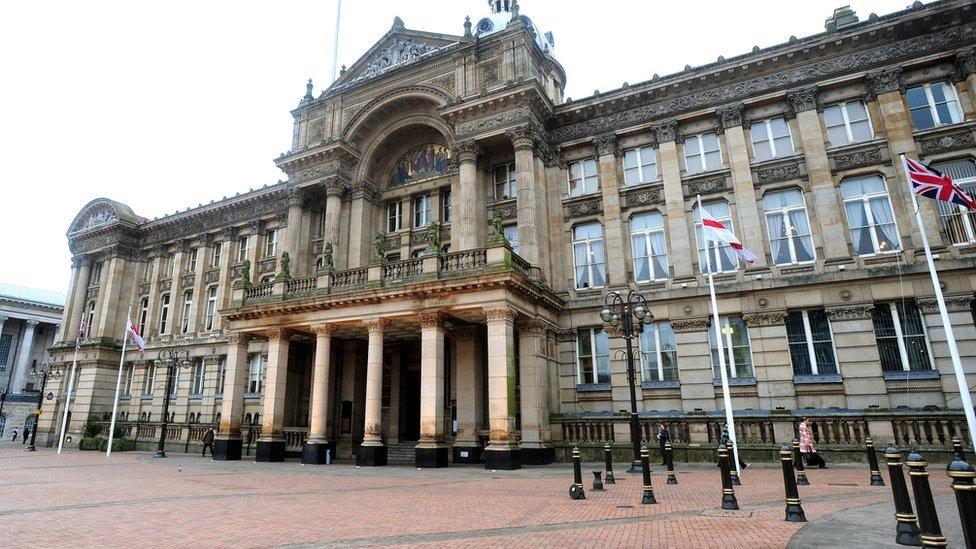Knife-edge battle for West Midlands metro mayor?
- Published
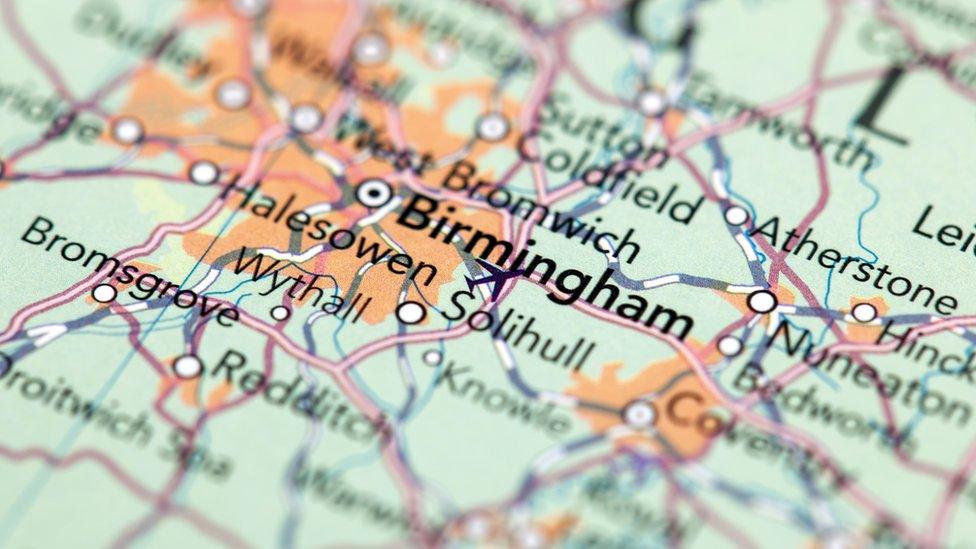
The first 'metro mayor' of the West Midlands will lead a population of nearly three million people across Coventry, Birmingham and the Black Country.
They will have powers over Economic Development, Education and Skills, Housing and Transport to be downloaded from Central Government and emphatically not uploaded from local authorities.
But this has not prevented the West Midlands Combined Authority (WMCA), to be headed by the mayor, from being dubbed a 'super-council' by critics who think too much power is being concentrated in too few hands.
UKIP have been consistent critics of the entire project, dismissing it is "devolution of power from the People to the Establishment": but, as we shall see, they have overcome their misgivings sufficiently to run a candidate now that the contest is upon us.
Ministers in both the Cameron and May governments have pressed ahead with this latest exercise in regional devolution in defiance of malcontents in all the local political parties, including their own.
'Sweated blood'
David Cameron once told me: "If you want the maximum level of devolution, devo max, you must have a focal point at the top for accountability."
More recently, shortly after leaving office, the former Chancellor George Osborne told the BBC he had "sweated blood to get a West Midlands mayor agreed."
The six candidates face a fight, not just for the honour of championing the West Midlands at home and abroad, but also to raise the general level of popular interest.
A recent COMRES poll suggested just under 40% of the electorate were aware the contest was happening at all.
Fears of a low turnout are reinforced by the fact that the seven constituent local authorities in the metropolitan area are not holding council elections this year.
This means the electorate who do bother to turn out to elect the mayor will be those prepared to do so for that reason alone.
They will also have to contend with the relatively novel 'supplementary vote' system; the ballot papers will show two columns marked '1' and '2' alongside the candidates' names. Voters will be invited to mark an 'X' in the '1' column for their preferred candidate with the option of marking another 'X' in the '2' column for their second favourite if they so wish. But if they wish to vote for only one candidate, that's fine too.
When the votes are eventually counted, if no candidate has registered more than 50%, all the candidates apart from the first two will be eliminated and their second preferences will be added to those of the first round winner and runner-up to decide the result.
The candidates will appear on the ballot papers in alphabetical order.
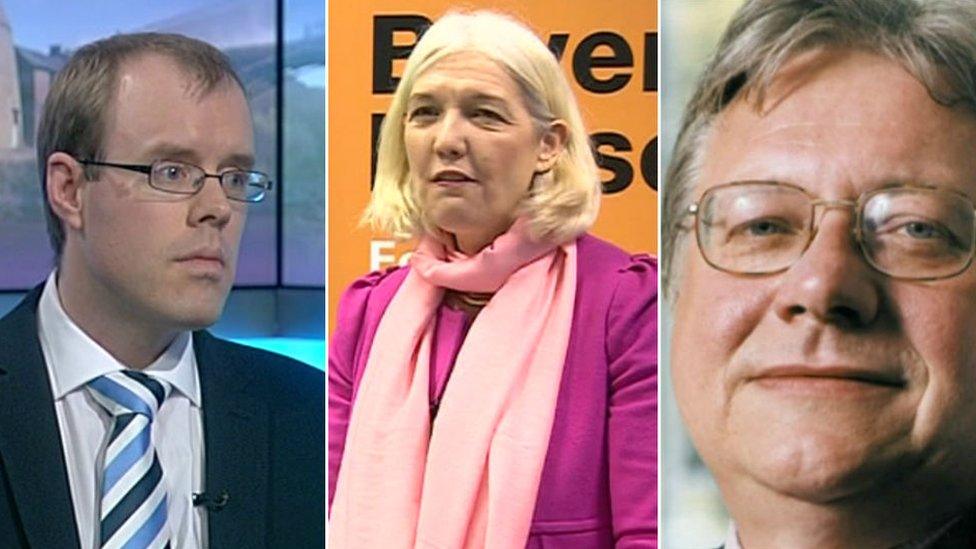
James Burn; Beverley Anne Nielsen and Graham John Stevenson are among six candidates
James Burn (Green)
A social worker, small business owner and Solihull councillor, he is campaigning to lift more children out of poverty, encourage small businesses and distinctive high streets and deliver sustainable solutions to economic development and climate change.
Pete Durnell (UKIP)
An IT specialist from Warley, he also stood for West Midlands Police and Crime Commissioner. He wants to subsidise lorries to use the M6 Toll instead of the M6, to invest in new technologies and to refurbish or convert empty homes, shops and offices to deliver affordable housing.
Beverley Nielsen (Liberal Democrat)
A former business leader turned university lecturer in Birmingham, she promises to unify and champion community interests by offering "a strong voice for change" to help people through the confusion and uncertainty surrounding Brexit.
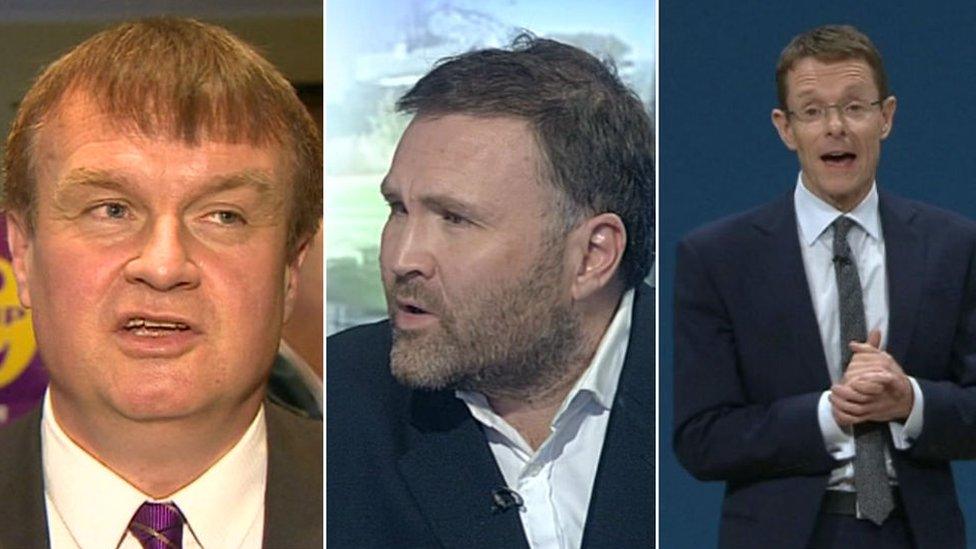
Peter Durnell; Sion Llewelyn Simon and Andy Street will also stand on 4 May
Sion Simon (Labour)
A former Birmingham MP and government minister, he is currently one of the West Midlands' Members of the European Parliament. He promises 8,000 new apprenticeships and a £500 million fund to clean up derelict sites for house-building and jobs creation.
Graham Stevenson (Communist)
A former union official from Coventry and current member of the party's Executive and Political Committees, he is promising to nationalise the M6 Toll and to introduce a minimum wage of £10 per hour.
Andy Street (Conservative)
Originally from Birmingham, he stood down as managing director of the John Lewis department store chain in order to fight this election. He is promising to eradicate youth unemployment, to deliver 25,000 new houses and to invest in public transport.
The Contest
This will be a significant test, both of whether or not the Liberal Democrats can sustain their recent recovery with their unambiguously anti-Brexit message and of UKIP's ability or inability to recover from their recent well-documented setbacks.
But as so often in the West Midlands, this election is generally seen as a predominantly two-party affair.
In the face of the widespread perception that this is and always will be "a Labour area", the Conservatives cite research by the Centre for Cities suggesting they need only a 4% swing against Labour 2015 General Election performance.
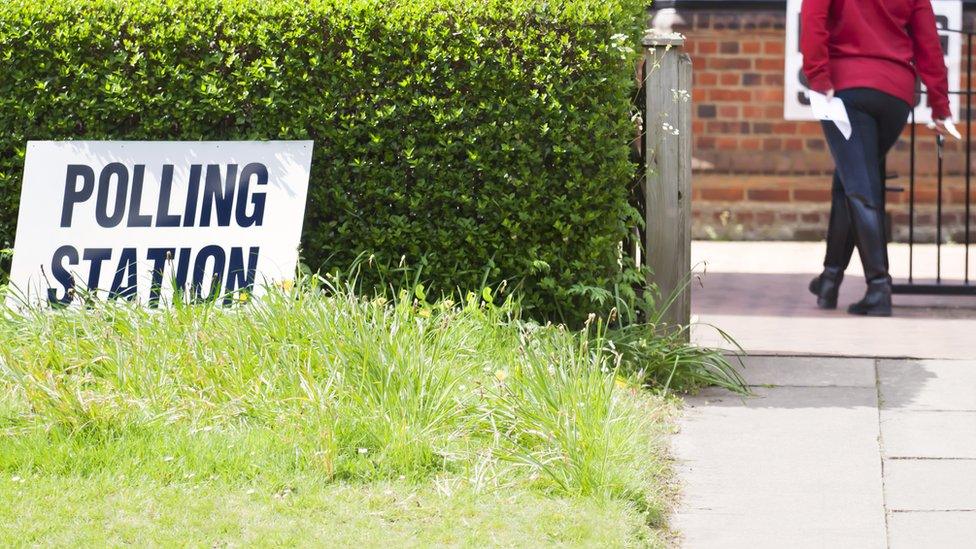
A lack of council elections in the West Midlands might have a knock-on effect on voter turnout
Labour point out they polled twice as many votes in that same electoral area.
That was before Jeremy Corbyn and Brexit. So how do the numbers stack up this time?
One of Britain's foremost polling analysts, Professor John Curtis of the University of Strathclyde calculates that the swing required by the Conservatives is not 4% but a more demanding 12%.
But even allowing for that, he still sees this as a knife-edge battle.
He told BBC One's Sunday Politics on 2nd April 2017: "The West Midlands looks like a draw. And another Labour loss would pile yet more pressure on Jeremy Corbyn."
Some mayoral elections elsewhere in the country may have the look of foregone conclusions. Here at least is the prospect of a genuine contest.
- Published4 April 2017
